Royal Aeronautical Society Podcast
The Royal Aeronautical Society is the world’s only professional body dedicated to the entire aerospace community. Established in 1866 to further the art, science and engineering of aeronautics, the Society has been at the forefront of developments in aerospace ever since.
Episodes
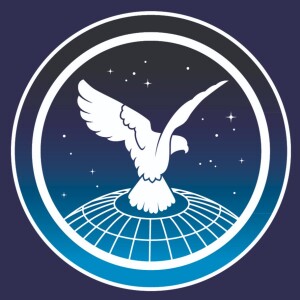
Monday May 24, 2021
Monday May 24, 2021
In this recording from 2007, the USAF’s Program Executive Officer gives a thorough briefing on the early testing, development and expectations of the international stealth multirole combat aircraft, eight years before it entered operational service.
Brig Gen Charles Davis gave the RAeS Sir James Martin Memorial Lecture on 8 May 2007. The lecture was introduced by the then RAeS President Elect, Capt. David Rowland FRIN FRAeS, and the podcast was edited by Eur Ing Mike Stanberry FRAeS.
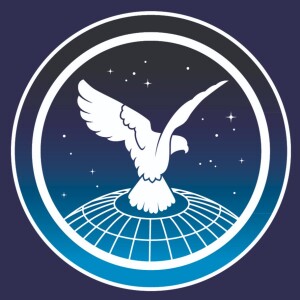
Monday May 17, 2021
Monday May 17, 2021
Hawker Siddeley Aviation executive Sqn Ldr John Crampton takes listeners through the aircraft and designers that made up the fascinating history of aircraft manufacturing at Kingston-upon-Thames. He begins with its origins in Sopwith Aviation and continues with the role of Hawker Siddeley Aviation to 1971, when this lecture was given. The talk includes audio recordings featuring several of the famous names involved, including Bill Humble and Philip Lucas.
The lecture includes discussion of many Sopwith and Hawker types including the Pup, Cygnet, Hart, Typhoon, Hunter and Sea Hawk. The achievements of the firm in air races and aircraft export campaigns are also portrayed, culminating in the story of the Harrier which proved so successful in both.
Sqn Ldr Crampton gave his lecture to a meeting organised by the Royal Aeronautical Society’s Historical Group on 19 January 1971. The recording was digitised thanks to a grant from the RAeS Foundation and the podcast was edited by Eur Ing Mike Stanberry FRAeS.
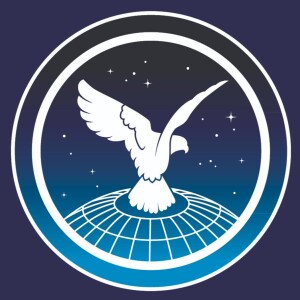
Monday May 10, 2021
Monday May 10, 2021
Perhaps best known as the architect of the NASA Aviation Safety Reporting System (ASRS), which pioneered the use of confidential incident reporting, Charles E. Billings had an entertaining and inspiring career in aviation medicine. Taking the story of his career ‘as he lived it’, Dr Billings tells his audience his path from music college to aviation medicine, his service as a flight surgeon in the US Air Force, his work as an academic and at NASA’s Ames Research Center. Throughout his career he worked on a wide range of pioneering projects including studies on suddenly placing people into high altitude conditions, how the human body responds to endurance flying, how increasing amounts of automation effects safety and a project that tested the effects of alcohol on pilots. He also tells us how the ASRS system was created and the wide-ranging effects the project has had, both in improving aviation safety and further afield.
Dr Billings finishes his lecture with some wise words for those who follow him into aviation medicine, including the importance of always learning new things and that ‘retirement can be very dangerous to your health.’ The lecture concludes with a vote of thanks from AVM John Ernsting FRAeS.
Dr Charles Billings MS MD FRAeS gave the RAeS Stewart Memorial Lecture on 17 March 2009. The podcast was edited by Eur Ing Mike Stanberry FRAeS.
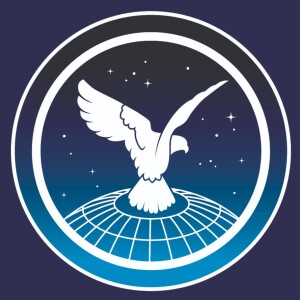
Monday May 03, 2021
Monday May 03, 2021
This warts and all view into the world of aviation journalism in the early 1960s was given in an era when a new form of aero magazine was replacing the old. With forty years in journalism and twenty as editor of Aeronautics behind him, Major Stewart explores the constraints on journalists, whether from D-notices, the language dictated by style sheets, the spokesmen or the new breed of owners and managers in the industry. He also looks at the three areas of aviation journalism in the period: the national newspapers, the specialist press and the free magazines, before looking into his crystal ball to predict where the industry was likely to go. In the last part of his lecture, Major Stewart highlights some of his favourite stories from years gone by.
Major Oliver Stewart addressed a meeting organised by the Royal Aeronautical Society’s Historical Group on 19 March 1962. The lecture is introduced by J. L. Nayler FRAeS FAIAA, the recording was digitised thanks to a grant from the RAeS Foundation and the podcast was edited by Eur Ing Mike Stanberry FRAeS.
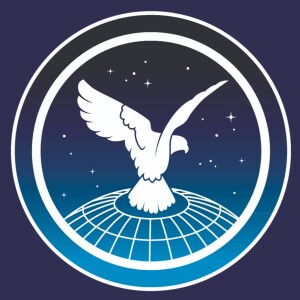
Monday Apr 26, 2021
Monday Apr 26, 2021
As BBC’s Aviation & Space Correspondent throughout the 1960s, Reg Turnill witnessed the achievements of Gagarin and his contemporaries from the press box. In his paper, he shares his memories of covering Gagarin and Alan Shepard’s flights into space from the contrasting atmospheres at Moscow and Cape Canaveral. He also explores the differing selection processes for the first cosmonaut and first astronaut and shares the challenges of writing about the Soviet side of the space race.
The recording also includes a discussion of Gagarin’s legacy that between Pat Norris, Douglas Barrie, Dr Jeremy Curtis, Reg Turnill and Gerry Webb, together with questions from the audience.
Reg Turnill presented his paper to the RAeS Space Group Conference, Yuri Gagarin’s legacy, 50 years on: securing the vision for the next half century. The event was held on 16 March 2011, the session was chaired by Pat Norris FRAeS & Dr John Hobbs and the podcast was edited by Eur Ing Mike Stanberry FRAeS.
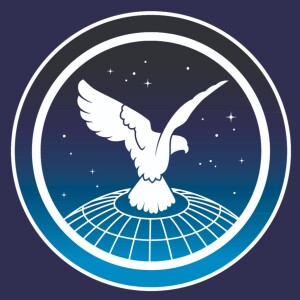
Monday Apr 26, 2021
Monday Apr 26, 2021
Garagin's flight was a triumph for the team of engineers led by Korolyov that produced both the R7 launcher and the Vostok spacecraft. In this paper, Mark Hempsell examines the culture of the Russian space industry and argues that it was dominated by a pre-war vision of astronautics, whereas in the United States and Europe space was seen more as an adjunct to the aeronautical industry. The only other nation with a similar outlook to Space, he argues, is the United Kingdom although the history of how this happened was very different.
Mark Hempsell presented his paper to the RAeS Space Group Conference, Yuri Gagarin’s legacy, 50 years on: securing the vision for the next half century. The event was held on 16 March 2011, the session was chaired by Dr John Hobbs and the podcast was edited by Eur Ing Mike Stanberry FRAeS.
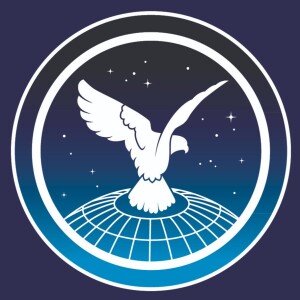
Monday Apr 19, 2021
Monday Apr 19, 2021
60 years ago, 27-year-old Russian cosmonaut Yuri Alexeivich Gagarin was strapped into a Vostok capsule and launched 188 miles out into space. On a spring morning at 06.07 am UT on April 12th 1961, ascending slowly from a Baikonur cosmodrome launch-pad set in the Kazakhstan steppes, he was to make history. Gagarin became the first ever human being to leave the Earth's surface and experience a new environment in the zero-gravity of the cosmos. He completed what was very nearly a full orbit of the Earth and travelled at almost 18,000 mph, moving around the planet at an extraordinary 5 miles a second.
Nick Spall tells the intriguing story of the human and technological achievements of Yuri Gagarin’s historic flight.
Nick Spall presented his paper to the RAeS Space Group Conference, Yuri Gagarin’s legacy, 50 years on: securing the vision for the next half century. The event was held on 16 March 2011, the session was chaired by Pat Norris FRAeS and the podcast was edited by Eur Ing Mike Stanberry FRAeS.
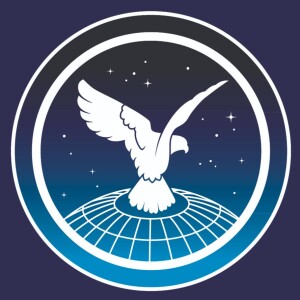
Monday Apr 19, 2021
Monday Apr 19, 2021
Six weeks after Gagarin’s space flight, President John Kennedy proclaimed: 'I believe that this nation should commit itself to achieving the goal, before this decade is out, of landing a man on the moon and returning him safely to the Earth.' That proclamation has earned Kennedy praise as a space visionary, though in private Kennedy confessed that he was 'not very interested in space'.
Prof DeGroot explores how and why the reluctant space policies of the Eisenhower and Kennedy administrations were replaced by a new space paradigm which measured the virility of a nation by its ability to land a man on the moon.
Prof Gerard DeGroot presented his paper to the RAeS Space Group Conference, Yuri Gagarin’s legacy, 50 years on: securing the vision for the next half century. The event was held on 16 March 2011, the session was chaired by Pat Norris FRAeS and the podcast was edited by Eur Ing Mike Stanberry FRAeS.
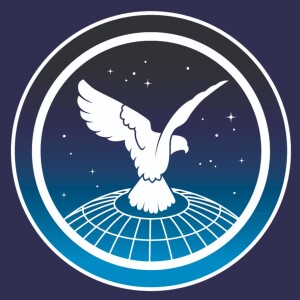
Monday Apr 12, 2021
Monday Apr 12, 2021
The real basis for scientific advance in British aviation was created by Mervyn O’Gorman whilst he was in charge of Farnborough’s Royal Aircraft Factory, the forerunner to the Royal Aircraft Establishment. In this archive recording, O’Gorman explains how he brought in a number of bright young researchers to develop both the science of aeronautics and many of the key aircraft types that served during the First World War.
This podcast was edited by Eur Ing Mike Stanberry FRAeS and it was digitised thanks to a grant from the Royal Aeronautical Society Foundation.
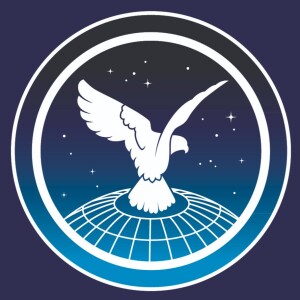
Monday Apr 12, 2021
Monday Apr 12, 2021
After seeing his first aircraft flying above his school in around 1910, Ashburner knew where he wanted to be. In this archive recording, we hear of how Ashburner learnt to fly in the Royal Flying Corp during the First World War and stories of his time as a club flyer in the 1930s. Ashburner goes on to paint a picture of civil aviation on the eve of the Second World War from his seat in Air Traffic Control first at Croydon and then at Heston Airport.
World War II gave Ashburner the chance to become a full-time pilot once more, this time as a ferry pilot with the Air Transport Auxiliary. Ashburner describes the aircraft he flew during the war and retells some of the stories from that period of his career.
PLEASE NOTE: We apologise for the poor quality of this archive recording.
The recording was made at the Royal Aeronautical Society on 6 December 1971, the podcast was edited by Eur Ing Mike Stanberry FRAeS and it was digitised thanks to a grant from the Royal Aeronautical Society Foundation.





